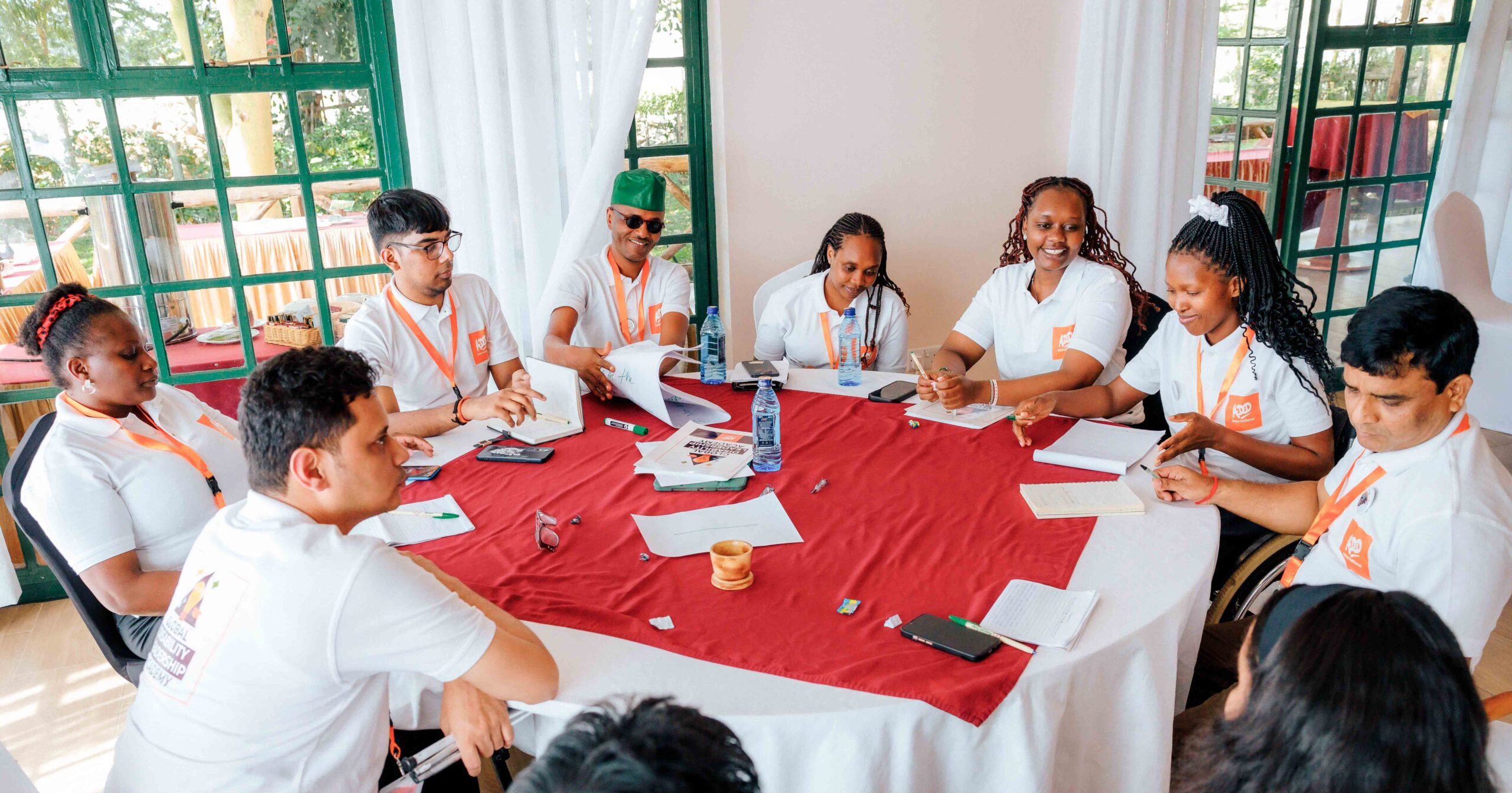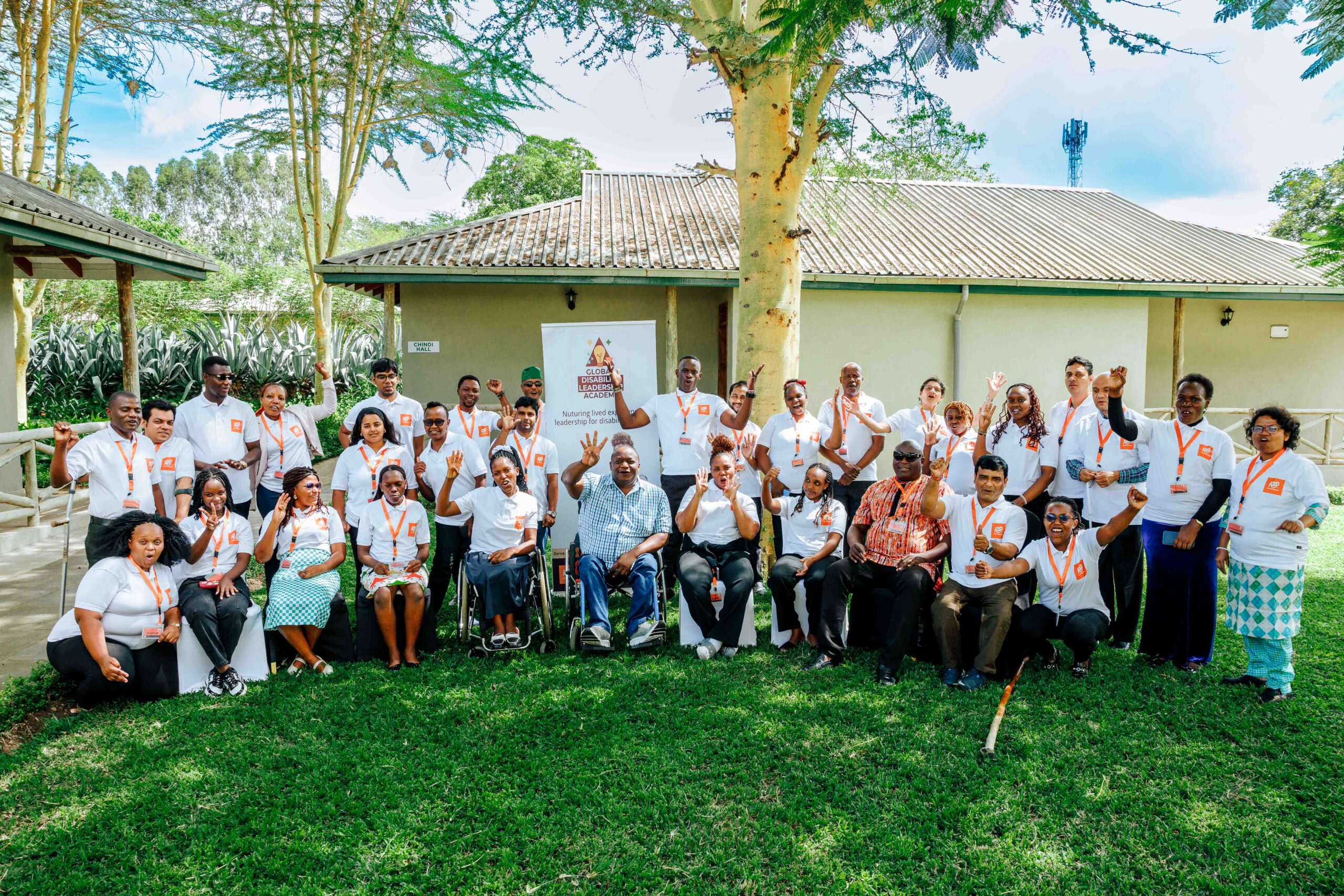The Global Disability Leadership Academy.
This year, 2025 we launched the Global Disability Leadership Academy to support the unique but largely untapped leadership potential of disability justice leaders, especially women and girls and emerging young leaders. Many of these groups have received little or no support with their leadership journey. But their leadership would contribute to a diverse and thriving disability justice movement.
ADD worked intensively with a group of consultants, the majority of whom were activists with disabilities themselves, from the Global Majority World to develop the academy curriculum, ensuring that it met the needs that activists had identified, and was fully accessible and inclusive. They focused on those who face multiple types of oppression and often miss out on these kinds of opportunities.
We were excited to welcome our first group of academy participants early this year. These include active disability justice activists with strong plans of what they want to do with the training.
We want to support the global network of disability justice activists across the world to become the next generation of change makers.
Disability discrimination interferes with education. Few disabled people take part in existing leadership courses and networks such as those for young people or women. This means disability activists often can’t access the qualifications and networks to set up and run their own organisations and to ensure long-term leadership so that organisations can outlive their founders and thrive.
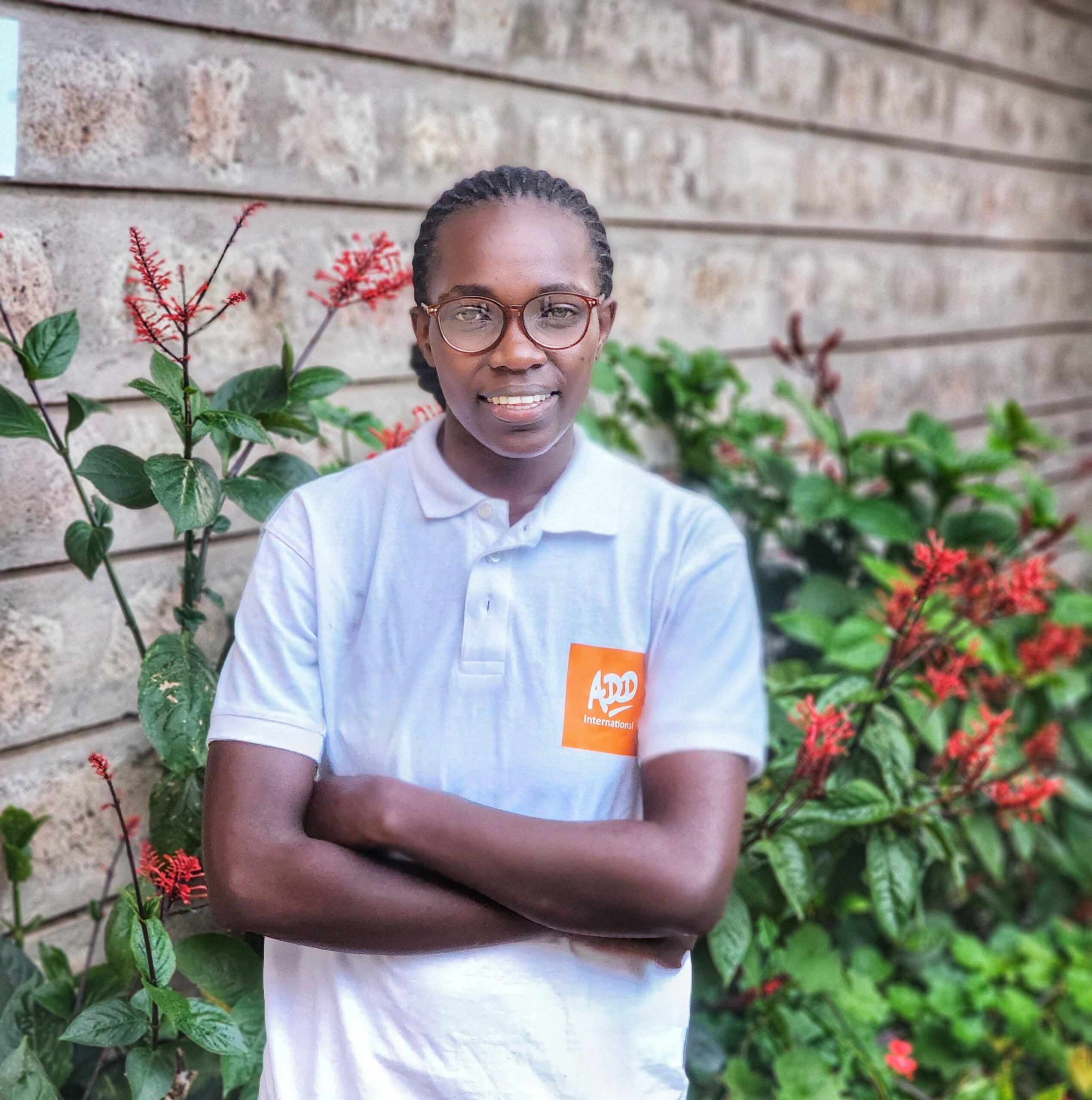
“At the university, most leadership positions were occupied by persons without disabilities. This is a norm I wanted to change so that persons with disabilities can take on leadership positions too. I decided to contest, and I got a lot of feedback from fellow students that I would not go through. Surprisingly, I won and got into leadership. I want to use my position to encourage fellow persons with disabilities to take on leadership and voice their concerns for change.”
Gladis, a university student from Kenya.
The academy is a combination of online and in-person training, mentorship, practical leadership work and network-building delivered to cohorts of leaders on an annual basis.
The design of the academy engages the leaders themselves in identifying the range of support and skills they need to pursue their own aspirations. This may be in activism and movement leadership but could also be in other areas such as business or entrepreneurship. We will work to ensure access to these opportunities for those with limited access to them in other ways.
The leadership academy supports connection and collaborations between alumni in different sectors, allowing disability justice leaders across different fields and parts of the world to draw on the relationships formed throughout their lives and careers.
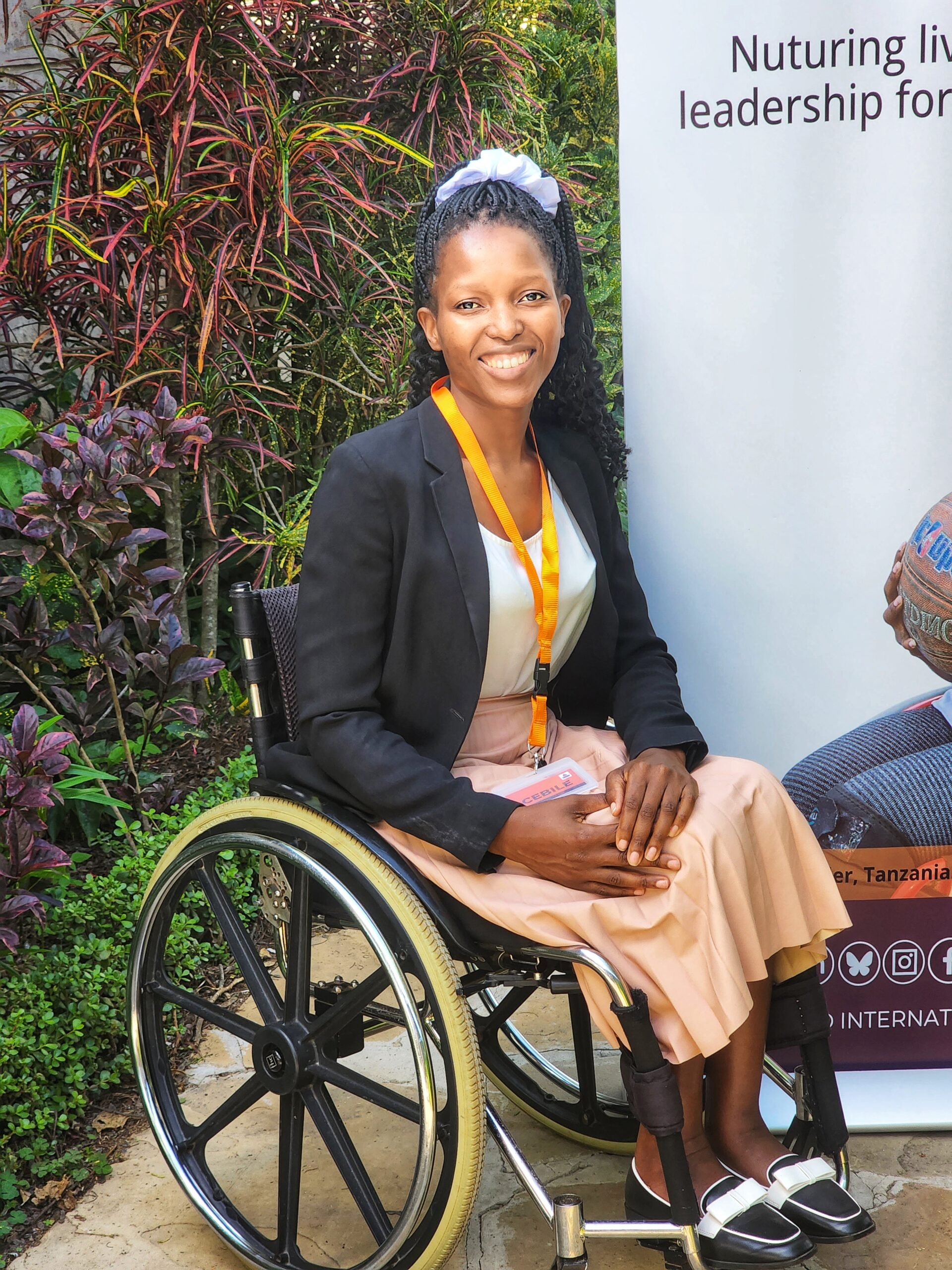
“I would love to influence change for disability justice through my immediate networks. I hope to motivate community leaders to organise gatherings where I can share my experience and learnings about leadership as a person with disability. I also want to raise awareness in my community church and local shop that bring together a number of people.”
Cebile Mamba, from Eswatini in Southern Africa
Supporting Young Leaders to Thrive.
Around the world, we are supporting young disability justice leaders to thrive.
From mapping disability justice movements to supporting gender equality activists, young disability justice activists are using their lived experience and expertise to make change in their communities.
We want to support the global network of young disability activists to become the next generation of changemakers in their communities to achieve their leadership potential for years to come.
We will help young activists build their leadership skills and give them the tools they need to effect change locally and globally. We want to support the next generation of activists to take action locally, within mainstream society and on the world stage.
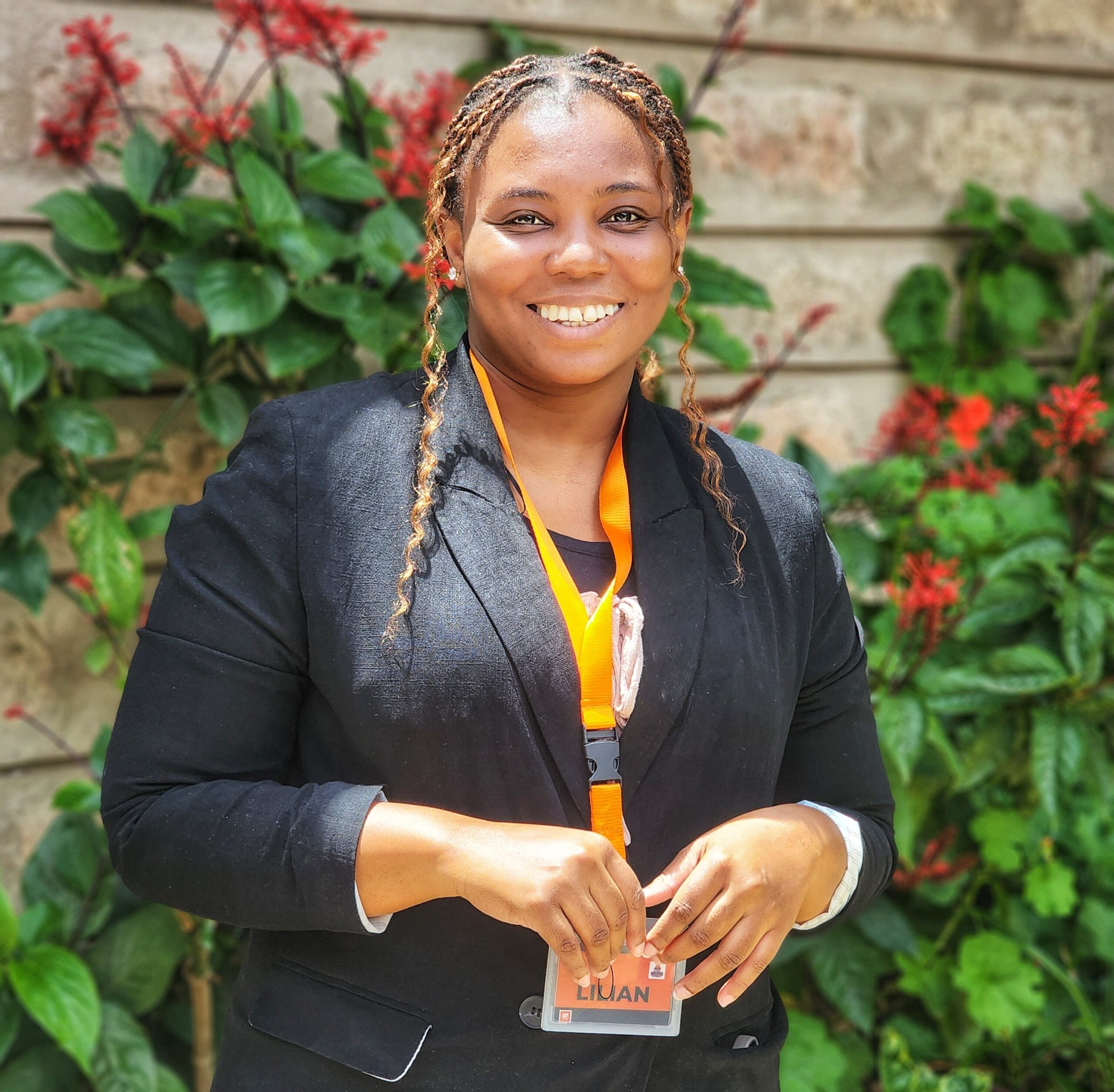
“I am learning practical leadership tools that are strengthening the way I approach advocacy and project management. The academy is giving me space to reflect on my own leadership style while also connecting me to a global network of peers and mentors who share the same commitment to inclusion and social change. This experience is also building my confidence to influence change at higher levels and equipping me with skills to design sustainable projects.”
Lillian, from Tanzania.
Challenges in Leadership.
Young leaders with disabilities often face barriers that limit their leadership potential. The academy helps break down these barriers by building their skills, confidence, and vision, giving them the tools to define disability leadership for themselves and to become powerful advocates and change-makers in their communities.
Muhammed, highlights the marginalisation people with disabilities face in his community, which limits their leadership potential.
“I feel excited about attending the academy. Deep in my community, there are no persons with disabilities in leadership because of the marginalisation they face. I hope to be a role model and create more awareness about this so that persons with disabilities are engaged in leadership.”
Muhammed, from Sierra Leone.
George, adds that;
“In most cases, most leaders have been nurtured through different clubs in schools for example debate clubs, and other capacity building platforms but young people with disabilities don’t get a chance to be a part of such leadership platforms because of discrimination and stigma. The academy will therefore be a platform to offer leadership skills.”
Our work with Young Leaders Previously.
ADD has supported young leaders in Sudan, Cambodia and Tanzania to work with disability justice activists to conduct a detailed study of the disability movement and identify how it can be more resilient.
Through a six-month Leadership Training we provided young people with disabilities, particularly women, with an opportunity to experience working in an INGO environment, to develop their leadership capacities and creativity and explore the future direction of their leadership and activism.
ADD has supported disabled people to come together in their own organisations to raise their own voices and fight for their own rights for over 30 years.

“I have had the chance to help strengthen the disability rights movement. I have visited organisations of people with disability, created networks between different organisations and shared what we have learnt. Many of these people have been ignored, but we listen.”
Elkhansa, Young Leader in Sudan.
In addition to this, the young leaders learnt about their rights, and the disability laws and policies in their countries, in order to use this knowledge to advocate for better access to the workplace, decision-making spaces, and wider society.
In many cases, there are policies in place but they are not being acted on. By sharing their knowledge with the wider disability justice movement, and advocating to decision-makers, these young leaders have been able to make real and lasting change in their communities.
If you would like to partner with us to make this vision a reality, we would love to hear from you.
Funding.
Part of the work under this project is made possible thanks to funds raised by players of People’s Postcode Lottery.

find out more

sokhak’s story
Sokhak, a young leader in Cambodia, shares her story.
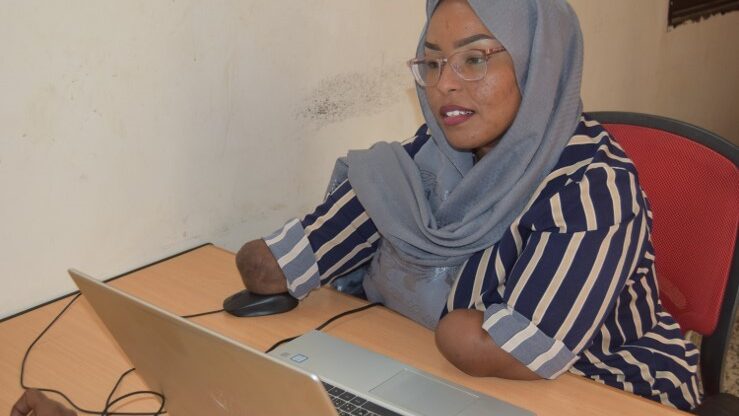
elkhansa’s story
Elkhansa, a young leader in Sudan, shares her story.

